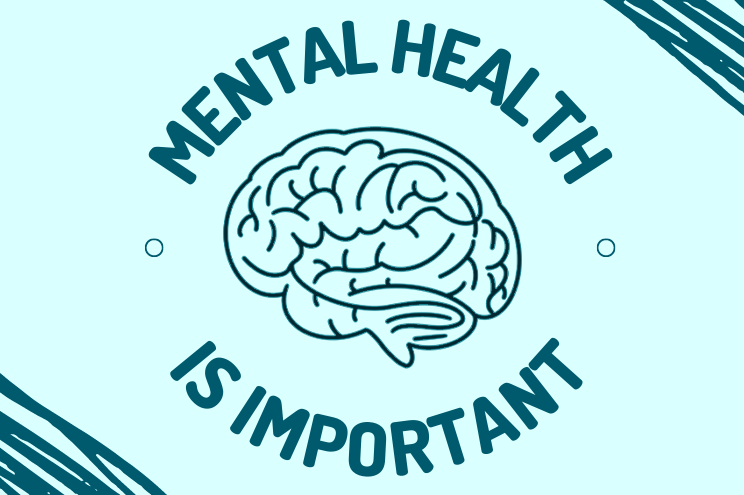How to Use Clonazepam for Sleep: Dosage, Side Effects, and Precautions

What is Clonazepam and its Uses for Sleep?
Clonazepam is a medication that belongs to a class of drugs called benzodiazepines. It is primarily prescribed for the treatment of anxiety disorders and epilepsy. However, it can also be used off-label for the management of certain sleep disorders.
One of the main uses of Clonazepam for sleep is in the treatment of insomnia. Insomnia is a common sleep disorder characterized by difficulty falling asleep, staying asleep, or experiencing non-restorative sleep. Clonazepam helps to induce and maintain sleep by acting on certain receptors in the brain that regulate sleep-wake cycles. It can be particularly beneficial for individuals who have trouble falling asleep due to anxiety or racing thoughts. However, it is important to note that Clonazepam should only be used under the guidance of a healthcare professional, as prolonged or inappropriate use can lead to tolerance, dependence, and potential addiction.
In this video, you will get what you need to know about Clonazepam:
Clonazepam Dosage for Sleep Disorders

Clonazepam is a medication commonly prescribed to individuals suffering from sleep disorders such as insomnia and restless leg syndrome. The dosage of Clonazepam for sleep disorders will vary depending on the severity of the condition and individual factors. It is important to note that the dosage should always be determined by a healthcare professional who will consider the patient’s age, medical history, and response to treatment.
In general, Clonazepam is typically started at a low dose and gradually increased if necessary. For adults, the usual starting dose ranges from 0.25 to 0.5 milligrams taken orally before bedtime. This initial dose can be adjusted by increments of 0.25 to 0.5 milligrams every three days until the desired therapeutic effect is achieved. The maximum recommended daily dose for adults is usually 4 milligrams. For elderly individuals or those with liver or kidney impairment, a lower starting dose may be recommended to minimize the risk of adverse effects.
It is worth noting that the dosage of Clonazepam for sleep disorders should never be self-adjusted without consulting a healthcare professional. Abruptly stopping the medication can lead to withdrawal symptoms and should always be done under medical supervision. Regular follow-ups with a healthcare provider are also essential to monitor the effectiveness and potential side effects of Clonazepam. The importance of open communication with a healthcare professional cannot be overstated in ensuring the appropriate dosage of Clonazepam for sleep disorders is prescribed.
Potential Side Effects of Clonazepam
The use of Clonazepam for sleep disorders has proven to be effective for many individuals. However, it is important to be aware of the potential side effects that may accompany its use. Some common side effects of Clonazepam include drowsiness, dizziness, and coordination problems. These effects are typically mild and temporary, but it is advisable to avoid activities that require alertness until you know how the medication affects you.
In some cases, more serious side effects may occur, although these are less common. These may include confusion, hallucinations, suicidal thoughts, and changes in mood or behavior. If you experience any of these symptoms, it is crucial to seek medical attention immediately. Additionally, Clonazepam can cause physical dependence and withdrawal symptoms if it is used for an extended period. Abruptly stopping the medication can lead to rebound insomnia or other withdrawal symptoms, so it is essential to follow your healthcare provider’s instructions for tapering off the medication if you decide to discontinue its use.
Here’s a table summarizing potential side effects associated with clonazepam use:
| Side Effects | Description and Considerations | Credible Source |
|---|---|---|
| Drowsiness and Sedation | Clonazepam may induce drowsiness and sedation, affecting mental alertness. Caution is advised when engaging in activities requiring concentration. | MedlinePlus – Clonazepam |
| Fatigue | Feelings of tiredness or lethargy can be a common side effect, potentially leading to daytime sleepiness. | National Institutes of Health – Clonazepam |
| Dizziness | Some individuals may experience dizziness or lightheadedness, particularly upon standing quickly. Caution in activities involving balance is recommended. | Mayo Clinic – Clonazepam (Oral Route) |
| Impaired Coordination | Clonazepam can affect coordination and motor skills, potentially leading to clumsiness. Users should be cautious during activities requiring precise movements. | WebMD – Clonazepam |
| Memory Issues | Some individuals may experience memory-related issues, such as forgetfulness or difficulty concentrating. If severe or persistent, consult a healthcare professional. | RxList – Clonazepam |
| Mood Changes | Clonazepam may influence mood, potentially causing mood swings or changes in emotional states. Consult a healthcare provider if significant mood changes occur. | PubMed – Clonazepam and Mood Disorders |
| Tolerance and Dependence | Prolonged use of clonazepam may lead to tolerance and dependence. Abrupt discontinuation can result in withdrawal symptoms; it should be done under medical supervision. | U.S. Food and Drug Administration – Klonopin (clonazepam) Tablets |
Precautions to Take Before Using Clonazepam for Sleep
Before using Clonazepam for sleep, it is crucial to take certain precautions to ensure its safe and effective use. Firstly, it is essential to consult with a healthcare professional before starting Clonazepam. This medication may not be suitable for everyone, especially individuals with certain medical conditions such as liver or kidney disease, respiratory problems, or a history of drug abuse.
Additionally, it is important to provide your healthcare professional with a comprehensive medical history, including any current medications, herbal supplements, or other treatments you are using. This will help them determine if Clonazepam is the right choice for you and if any adjustments or precautions need to be taken.
Moreover, it is crucial to follow the prescribed dosage and schedule provided by your healthcare professional. Taking Clonazepam in higher doses or more frequently than recommended can increase the risk of side effects and potential dependence. It is important not to abruptly stop using Clonazepam without consulting your healthcare professional, as this can lead to withdrawal symptoms. Regular follow-ups with your healthcare professional will help monitor your response to the medication and make any necessary adjustments to ensure optimal benefits while minimizing risks.
Taking these precautions before using Clonazepam for sleep will help ensure its safe and effective use. However, it is important to note that this information is not exhaustive, and individual circumstances may require additional precautions or considerations. Therefore, always consult a healthcare professional for personalized advice before starting any medication for sleep disorders.
Understanding the Mechanism of Clonazepam for Sleep
Understanding the mechanism of Clonazepam for sleep requires a closer look at its pharmacological properties. Clonazepam is a benzodiazepine medication that acts on the central nervous system. It enhances the activity of a neurotransmitter called gamma-aminobutyric acid (GABA) in the brain. GABA is responsible for reducing the excitability of neurons, thereby inducing relaxation and calmness. By increasing GABA activity, Clonazepam helps to calm down the overactive brain activity that can contribute to sleep difficulties.
Clonazepam is primarily used as an anti-anxiety medication, but it is also considered an effective treatment for sleep disorders. Its sedative properties help to promote sleep and decrease the time it takes to fall asleep. Additionally, Clonazepam can improve the quality and duration of sleep by reducing the number of nighttime awakenings. This medication has a longer half-life compared to some other benzodiazepines, allowing for a sustained effect throughout the night. However, it’s important to note that Clonazepam should only be used under the guidance and prescription of a healthcare professional. They can help determine the appropriate dosage and monitor any potential side effects or interactions with other medications.
How to Properly Store Clonazepam for Sleep
Proper storage of medications, including Clonazepam, is essential to ensure their effectiveness and safety. When it comes to storing Clonazepam for sleep, it is crucial to follow a few guidelines to maintain its potency and prevent any accidental misuse.
Firstly, Clonazepam should always be stored in its original packaging or container that it came in. The container should be tightly sealed to protect the medication from exposure to light, air, and moisture, which can degrade its quality. Additionally, it is advisable to store the medication in a cool and dry place, away from any direct heat sources or areas with high humidity levels.
Secondly, it is crucial to keep Clonazepam out of the reach of children and pets. Consider storing it in a locked cabinet or a place that is not easily accessible to avoid any unintentional ingestion or misuse. It is essential to always take caution, as any medication can pose potential risks if consumed by someone for whom it is not prescribed.
By adhering to these guidelines, you can ensure that Clonazepam retains its effectiveness when used for sleep disorders and prevent any unintended harm. It is always wise to consult with a healthcare professional or pharmacist for specific instructions on proper storage and handling of Clonazepam to ensure optimal results and safety.
Possible Drug Interactions with Clonazepam
Clonazepam, a commonly prescribed medication for sleep disorders, can potentially interact with other drugs, leading to unwanted side effects or reduced effectiveness. One such drug is alcohol. Combining alcohol with Clonazepam can enhance the sedative effects of both substances, increasing drowsiness, dizziness, and impaired coordination. It is important to avoid consuming alcohol while using Clonazepam to minimize these risks.
Additionally, certain antidepressant medications, such as selective serotonin reuptake inhibitors (SSRIs), may interact with Clonazepam. These interactions can result in an increased risk of central nervous system depression, leading to excessive sedation and respiratory depression. It is crucial for healthcare professionals to carefully consider the potential risks and benefits before prescribing Clonazepam to individuals taking SSRIs or other medications that may interact with it. Regular monitoring and dosage adjustments may be necessary to ensure safe and effective treatment.
Alternative Treatments for Sleep Disorders

There are several alternative treatments that individuals suffering from sleep disorders can explore. These options can potentially offer relief and promote better sleep without the use of medication like clonazepam. However, it is important to note that these alternative treatments may not work for everyone, so it is advisable to consult with a healthcare professional before trying any new therapies.
One alternative treatment that has shown promise in improving sleep quality is cognitive behavioral therapy for insomnia (CBT-I). This therapeutic approach focuses on identifying and changing the thoughts and behaviors that contribute to poor sleep. CBT-I typically involves a combination of sleep hygiene education, relaxation techniques, and cognitive restructuring to help individuals develop healthier sleep habits.
Another alternative treatment for sleep disorders is acupuncture. This ancient practice involves inserting thin needles into specific points on the body to alleviate various health conditions, including sleep disturbances. Although the exact mechanisms behind how acupuncture works for sleep disorders are still being studied, some studies have shown that it may help improve sleep quality and reduce sleep latency – the time it takes for a person to fall asleep.
In addition to CBT-I and acupuncture, other alternative treatments that individuals can consider for sleep disorders include herbal remedies, such as valerian root and chamomile, and relaxation techniques like meditation and yoga. However, it is important to remember that while these alternative treatments may be beneficial for some individuals, they may not be effective for everyone. It is always recommended to discuss these options with a healthcare professional to determine the most appropriate course of treatment.
Tips for Using Clonazepam Safely and Effectively
Maintaining safety and maximizing the effectiveness of Clonazepam for sleep requires adherence to recommended guidelines and precautions. It is crucial to take the following steps to ensure safe and effective use of this medication:
1. Follow the prescribed dosage: Clonazepam should be taken exactly as prescribed by a healthcare professional. Avoid changing the dose or frequency without consulting them first. It is important to note that Clonazepam is a potent medication, and altering the dosage without medical guidance can lead to adverse effects or reduced efficacy.
2. Take Clonazepam as directed: It is essential to follow the instructions provided by your healthcare provider regarding when and how to take Clonazepam. Typically, the medication is taken orally, with or without food. It is important to swallow the tablet whole and not break or crush it. Taking Clonazepam consistently at the same time each day can help maintain steady levels in the body, optimizing its sleep-inducing effects.
3. Be aware of potential side effects: Clonazepam can cause various side effects, ranging from mild to severe. Some common side effects may include drowsiness, dizziness, coordination difficulties, and blurred vision. If any of these side effects persist or worsen, it is important to consult your healthcare provider for further guidance. Additionally, be vigilant for rare but potentially serious side effects such as mood changes, suicidal thoughts, or allergic reactions, which necessitate immediate medical attention.
4. Avoid alcohol and other sedatives: Combining Clonazepam with alcohol or other sedative substances can enhance its effects and increase the risk of side effects. It is crucial to avoid consuming alcohol or using other sedative medications or substances while taking Clonazepam. These interactions can potentiate sedation, impair coordination, and lead to respiratory depression, among other adverse effects.
Remember, the safe and effective use of Clonazepam for sleep should always be discussed and monitored under the guidance of a healthcare professional. They will evaluate your individual circumstances, medical history, and sleep disorder to determine the appropriate dosage and duration of treatment. Adhering to their recommendations and being aware of the precautions mentioned above can help ensure a safer and more effective experience with this medication.
Common Misconceptions about Clonazepam for Sleep
One common misconception about Clonazepam for sleep is that it is a cure-all solution for all sleep disorders. While Clonazepam can be effective in treating certain sleep disorders, such as insomnia related to anxiety or panic disorders, it is not intended for use in all sleep-related problems. It is important to consult with a healthcare professional to determine if Clonazepam is appropriate for your specific sleep issue.
Another misconception is that Clonazepam is a completely safe and non-addictive medication for sleep. While Clonazepam can be beneficial in the short-term management of sleep disorders, it is a benzodiazepine medication that can potentially lead to dependence and addiction if used improperly or for an extended period of time. It is vital to follow the prescribed dosage and duration advised by a healthcare professional and to be aware of the potential risks and side effects associated with Clonazepam use.
Long-term Effects and Addiction Risks of Clonazepam
Consequently, it is crucial to consider the potential long-term effects and addiction risks associated with the use of Clonazepam for sleep. While Clonazepam can be effective in treating sleep disorders, prolonged use may lead to the development of tolerance, dependence, and addiction. Tolerance occurs when higher doses are required over time to achieve the same therapeutic effect. This tolerance can increase the risk of developing dependence, where the body becomes reliant on Clonazepam to function normally.
Additionally, prolonged use of Clonazepam can lead to the development of addiction. Addiction is a complex condition characterized by compulsive drug-seeking behavior, despite negative consequences. The risk of addiction is particularly high when Clonazepam is misused or taken in higher doses than prescribed. It is essential to note that abruptly stopping Clonazepam after long-term use can lead to withdrawal symptoms, which further highlights the potential for dependence and addiction. Therefore, it is crucial to carefully assess the risks and benefits of using Clonazepam for sleep and to work closely with a healthcare professional to monitor its use and potential long-term effects.
Consulting with a Healthcare Professional before Using Clonazepam
It is highly recommended to consult with a healthcare professional before considering the use of Clonazepam for sleep disorders. While Clonazepam can be effective in treating certain sleep conditions, such as insomnia or restless leg syndrome, it is important to understand the potential risks and benefits associated with this medication. A healthcare professional, such as a doctor or sleep specialist, can evaluate your specific situation and determine whether Clonazepam is an appropriate treatment option for you.
During a consultation, the healthcare professional will take into account several factors, including your medical history, current medications, and any underlying health conditions, to determine if Clonazepam is safe for you to use. They will also consider alternative treatments, potential drug interactions, and any potential side effects that may occur. Consulting with a healthcare professional ensures that you receive personalized advice and can make an informed decision about the use of Clonazepam for your sleep disorder. Remember, self-medication or improper use of Clonazepam can have serious consequences, so it is crucial to seek professional guidance.
Risks and Benefits of Clonazepam for Sleep
Clonazepam, a medication belonging to the benzodiazepine class, is commonly prescribed for the treatment of sleep disorders. It possesses sedative, hypnotic, and anticonvulsant properties, which can help individuals achieve a restful night’s sleep. However, it is crucial to weigh the risks and benefits before considering the use of Clonazepam for sleep.
One of the primary benefits of Clonazepam is its ability to promote sleep by reducing anxiety and inducing relaxation. This can be particularly beneficial for individuals suffering from insomnia or other sleep disorders characterized by excessive worry or heightened arousal. When used as prescribed, Clonazepam may help improve sleep quality, allowing individuals to wake up feeling refreshed and rejuvenated. It is important to note that the benefits of Clonazepam should be evaluated on an individual basis, taking into account the specific sleep disorder and the severity of symptoms.
Despite its potential benefits, Clonazepam also carries certain risks. Due to its sedative properties, this medication can cause drowsiness and impair cognitive function, coordination, and reaction time. This can be particularly dangerous when operating machinery or driving a vehicle. Additionally, Clonazepam has the potential for dependence and addiction, especially when used for prolonged periods or in higher doses than prescribed. Therefore, it is crucial to carefully consider the risks of Clonazepam and have open and honest discussions with a healthcare professional regarding the potential benefits and drawbacks before making a decision about its use for sleep.
What is Clonazepam and how is it used for sleep?
Clonazepam is a medication commonly prescribed for sleep disorders such as insomnia. It belongs to a class of drugs called benzodiazepines, and it works by affecting the chemicals in the brain that may be unbalanced and causing sleep problems.
What is the recommended dosage of Clonazepam for sleep disorders?
The dosage of Clonazepam for sleep disorders varies depending on individual needs and the severity of the condition. It is important to follow the dosage instructions provided by your healthcare professional and not exceed the prescribed amount.
What are the potential side effects of Clonazepam?
Common side effects of Clonazepam include drowsiness, dizziness, coordination problems, and feelings of fatigue. However, more serious side effects may occur and should be reported to a healthcare professional immediately. These can include difficulty breathing, severe drowsiness, or mood changes.
Are there any precautions to take before using Clonazepam for sleep?
Yes, there are precautions to consider. Clonazepam should not be used if you have a history of allergies to benzodiazepines or if you have certain medical conditions such as liver or kidney disease. It is also important to disclose all medications and supplements you are currently taking to your healthcare professional before starting Clonazepam.
How does Clonazepam work to improve sleep?
Clonazepam works by enhancing the effects of a neurotransmitter called gamma-aminobutyric acid (GABA) in the brain. This neurotransmitter helps to calm the central nervous system, resulting in relaxation and sedation.
How should Clonazepam be stored properly?
Clonazepam should be stored at room temperature, away from moisture, heat, and light. It should be kept in a secure place out of reach of children and pets.
Are there any possible drug interactions with Clonazepam?
Yes, there are potential drug interactions with Clonazepam. It is important to inform your healthcare professional about all medications you are taking, including over-the-counter drugs, vitamins, and herbal supplements, as they may interact with Clonazepam and cause adverse effects.
What are some alternative treatments for sleep disorders?
There are alternative treatments for sleep disorders that you may explore with your healthcare professional. These can include cognitive behavioral therapy, relaxation techniques, sleep hygiene practices, and natural remedies like melatonin.
How can Clonazepam be used safely and effectively?
To use Clonazepam safely and effectively, it is important to follow the prescribed dosage and instructions provided by your healthcare professional. Avoid alcohol and other sedatives while taking Clonazepam, and do not abruptly stop the medication without consulting your doctor.
What are some common misconceptions about Clonazepam for sleep?
One common misconception is that Clonazepam is a cure for sleep disorders. It is important to understand that Clonazepam is a temporary solution and should be used under medical supervision. Additionally, it is not recommended for long-term use.
What are the long-term effects and addiction risks of Clonazepam?
Long-term use of Clonazepam may lead to dependency and addiction. It is important to only use Clonazepam as prescribed and for the recommended duration. Abruptly stopping the medication can also lead to withdrawal symptoms.
Should I consult with a healthcare professional before using Clonazepam for sleep?
Yes, it is crucial to consult with a healthcare professional before using Clonazepam or any other sleep medication. They can evaluate your specific situation, provide proper guidance, and determine if Clonazepam is the right choice for you.
What are the risks and benefits of Clonazepam for sleep?
The risks of Clonazepam for sleep include potential side effects, the risk of dependency or addiction, and the need for medical supervision. The benefits include improved sleep quality, reduced sleep disturbances, and potential relief from sleep disorders when used appropriately and under the guidance of a healthcare professional.





